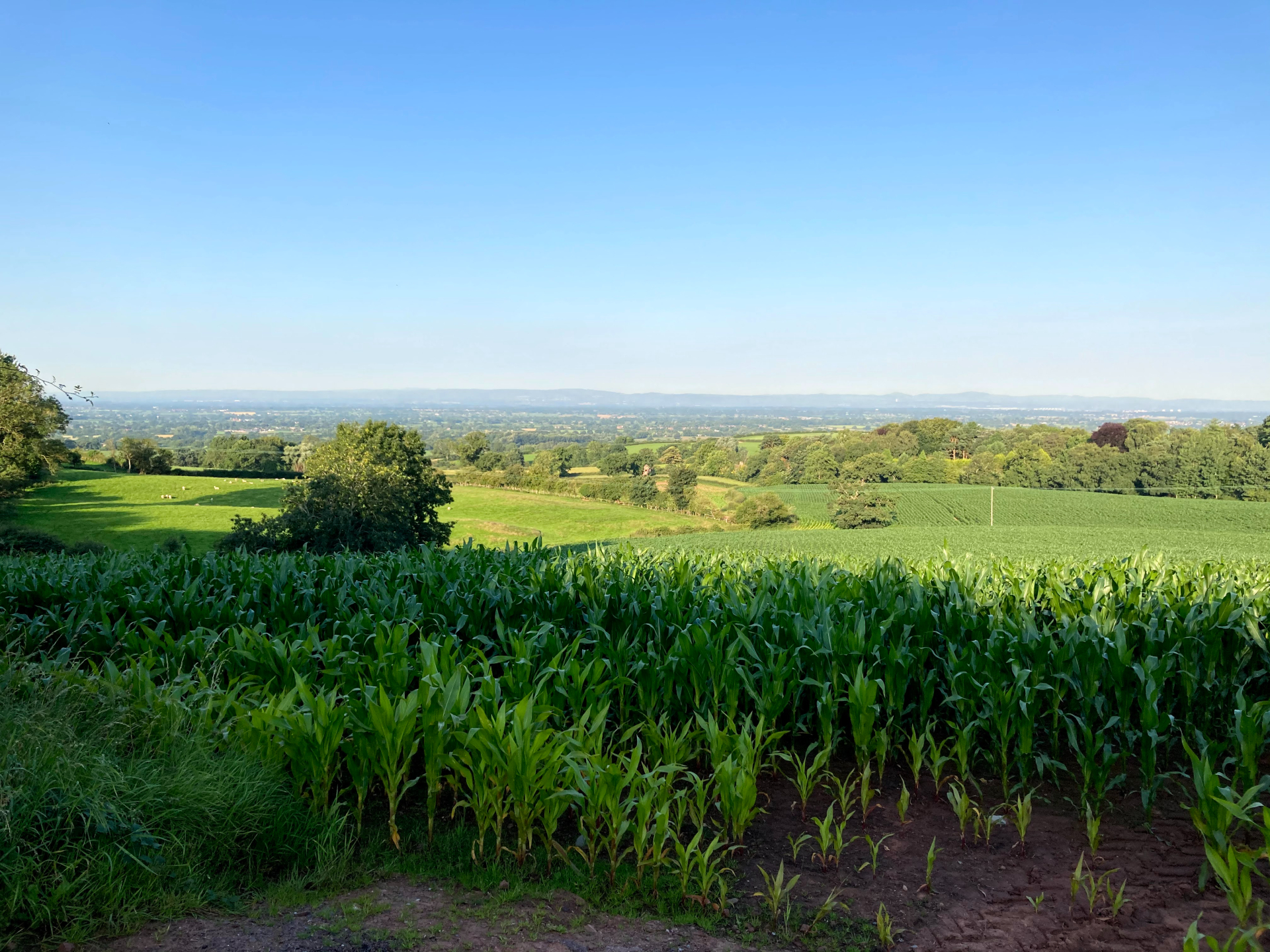The UN define food security as when all individuals, at all times have physical, social and economic access to sufficient safe and nutritious food which meets their dietary needs and food preferences for an active and healthy life. Food security is under pressure from the direct impacts of climate change and food supply chains need to be better prepared and more resilient to deal with global shocks and the extremes of extreme weather.
Risks and impacts
The Intergovernmental Panel on Climate Change 2023 states: “The increase in extreme weather and climate events has exposed millions of people to acute food insecurity and reduced water security”.
This is particularly evident across communities in Africa, Asia, Central and South America and Small Island States. In some oceanic regions, ocean warming and ocean acidification have adversely affected food production, which leads to economic losses within the agriculture and fishery industries sensitive to these impacts.
In the UK, the UK Food Security Report 2021 identified climate change as a risk to the future of the UK food sector. The Report said: “The biggest medium to long term risk to the UK’s domestic production comes from climate change and other environmental pressures like soil degradation, water quality and biodiversity”.
We’re already seeing the influence of climate change with warmer, wetter winters and hotter, drier summers. UK Climate Projections indicate that this theme is likely to continue as our planet warms.
A warmer climate brings increased levels of evaporation as a warmer atmosphere can hold more moisture – approximately 7% more per 1°C of warming – when it rains, we can see higher totals, bringing an increase in flood risk. We’re also likely to see an increase in intense summer rainfall which could cause damage to crops at an important time of year in the cropping cycle.
Increased levels of evaporation can also lead to drier conditions and droughts becoming more impactful, leading to loss of soil moisture. This makes the land more vulnerable to erosion from wind and rainfall, significantly impacting soil health and putting increased risk on agricultural productivity.
Climate change is also likely to lead to a greater number of pests in the UK due to warmer and wetter conditions, especially in the winter months, by making conditions more favourable for some existing pests and increasing the likelihood of invasive non-native species (INNS). This presents serious risks to agricultural productivity and has ramifications for food security.
High temperatures such as those seen in the summer 2023 heatwave, combined with a lack of shade and wind, causes heat stress in animals. Earlier this year, Carbon Brief reported on how: “Thousands of chickens – and more than a dozen pigs – died during transportation to slaughterhouses in England and Wales last summer due to heat-related stress. This marks a dramatic increase compared to the same period in 2021”.
Prolonged exposure to heat stress will also lead to problems with milk yield and fertility. Farming UK reported: The record-breaking high temperatures in June may have cost UK dairy farmers more than a litre a day in lost milk production per cow.
Supporting policymakers
At the Met Office, we understand the strong sensitivities of the agricultural industry around weather and climate and the need to adapt to our changing weather and climate.
Our climate service on Food, Farming and Natural Environment has been running for over five years. It focuses on the impacts of climate change on farming and the food system. Funded by Defra, our science informs policymakers on the future adaptation needed in the agri-food sector. The climate service is working in collaboration with a range of partners to understand effective resilience and adaptation measures for UK agriculture and food. For example, in collaboration with Defra, Fera Science, University of Exeter and University of Warwick, we have developed a web tool for estimating priority pest emergence.
To support the Third National Adaptation Programme (NAP3) published earlier this year, Met Office scientists provided bespoke support to government departments to explore in more detail some of the 61 risks and opportunities identified in the UK’s Third Climate Change Risk Assessment (CCRA3). Work is ongoing between the Met Office agri-food resilience service and Defra’s crop breeding research programme – the Genetic Improvement Networks (GINs). This work explores the use of genetic technology as an adaptation measure, by developing new varieties of crops that are resilient to the hazards of the future UK climate.

Reducing the risks
Risks, projected adverse impacts and related losses and damages from climate change escalate with every increment of global warming. The IPCC states: “Keeping warming to 1.5°C above pre-industrial levels requires deep, rapid and sustained greenhouse gas emissions reductions in all sectors. Emissions should be decreasing by now and will need to be cut by almost half by 2030, if warming is to be limited to 1.5°C.”
The IPCC identify climate resilient development as a way forward, seeing wider benefits of integrating measures to adapt to climate change with actions to reduce emissions. Through the course of the month, you will see how Met Office scientists are supporting the agricultural industry to prepare for a changing climate and ensure it remains resilient to the risks of future climate change.
Get Climate Ready
The Met Office #GetClimateReady campaign aims to help people understand how even by making the smallest changes in our lives, we can all play a part in adapting our lives to protect ourselves from the climate impacts we will see.
We’re working with partner organisations to help provide advice on how individuals can tackle the many challenges of climate change. There are a range of everyday actions, which includes practical quick wins for individuals, as well as actions which make the greatest impact. Our combined efforts can make a real difference.
Keep an eye on our Get ClimateReady webpages for a range of suggestions from our expert partners and follow #GetClimateReady across our social media channels to find out more.


